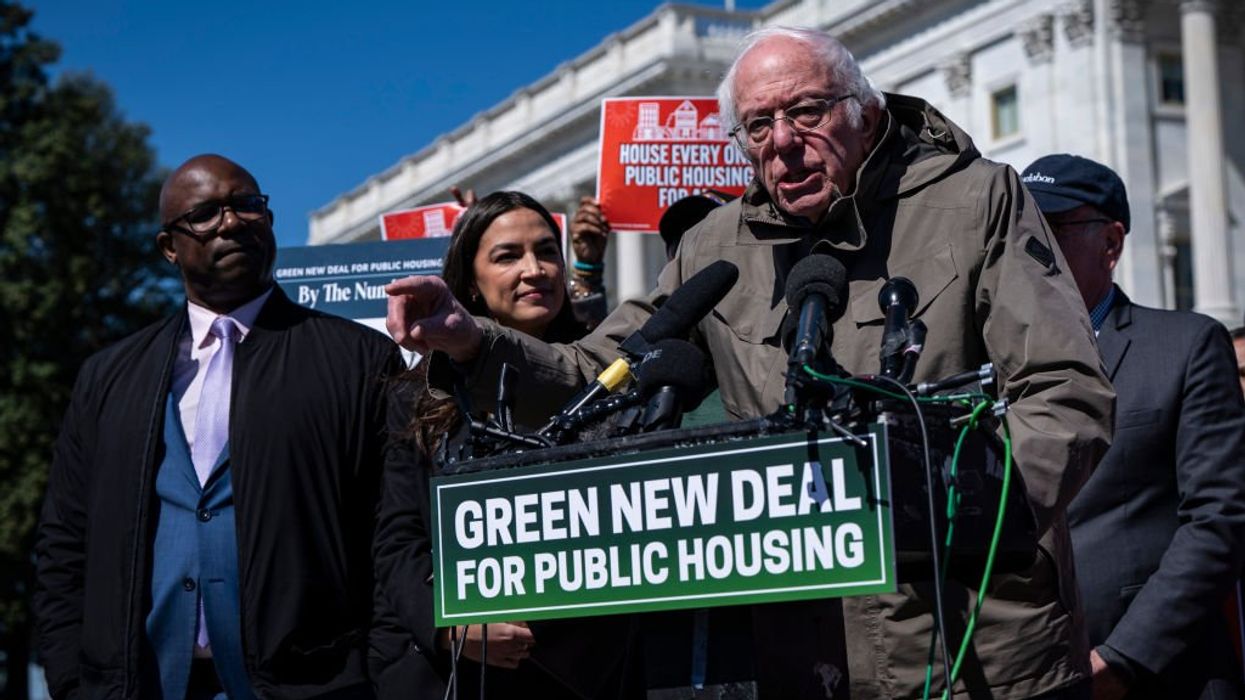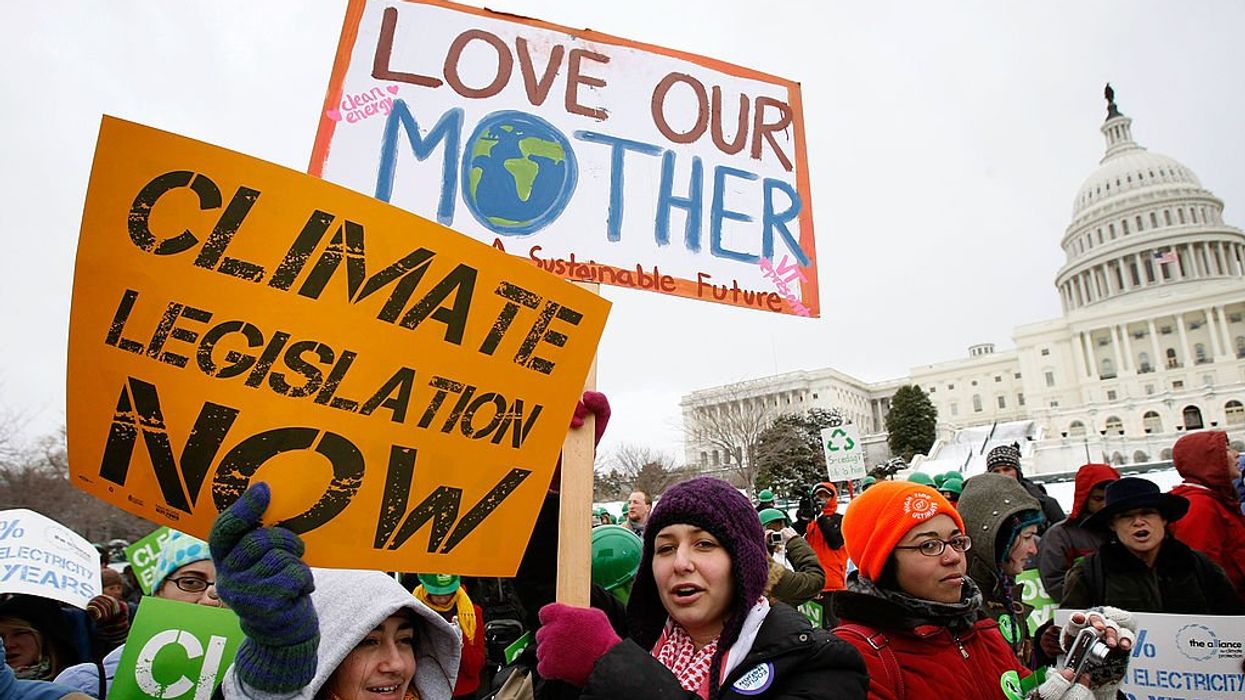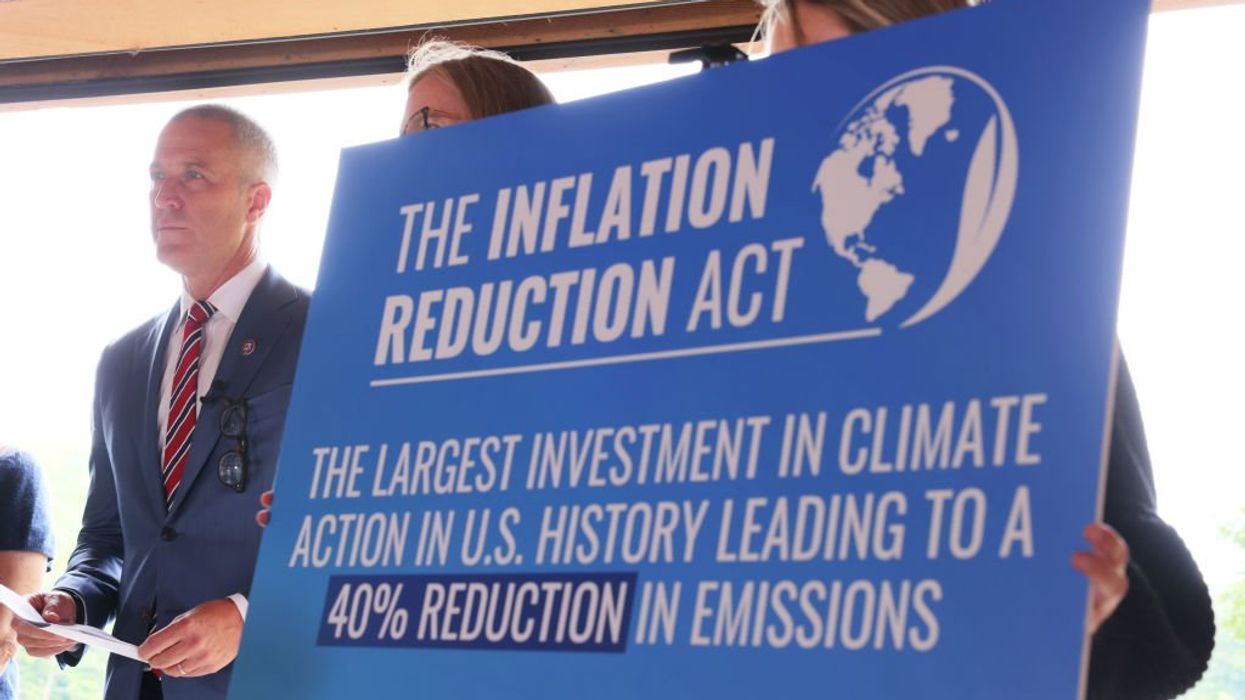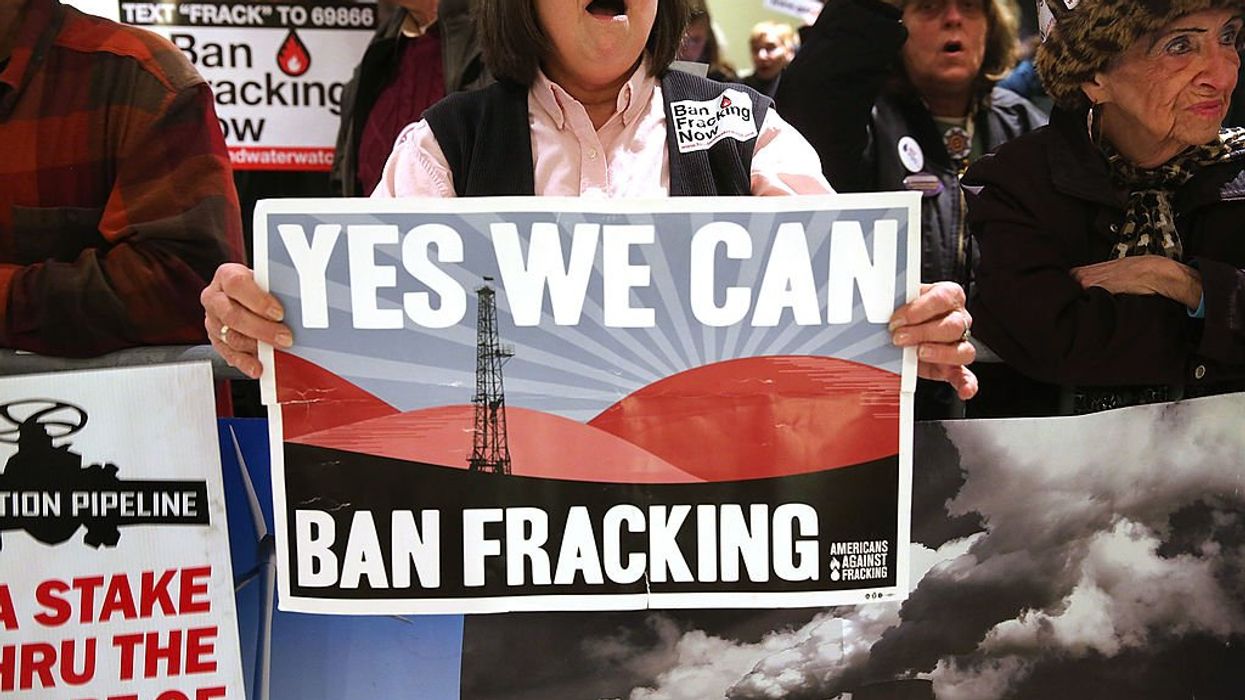If you wanted to cripple America for years, what would be the best way to go about it?
If your mind immediately went to the power grid, you think a lot like Glenn. For decades the secret to America's growth and prosperity has been its abundant and relatively cheap energy. Electricity has been so cheap for so long that many Americans take it for granted, though raising prices has put it back on many people's radars.
There are forces on the Left, including Kamala Harris, who is working to be "unburdened by what has been," and plunge America into a dystopian future where only the elite can afford "luxuries" like A/C and dishwashers. While Kamala has either remained silent or been dismissive of her radical climate policies, here are things that prove that Kamala has disastrous plans for our energy future:
Kamala endorsed the Green New Deal

Bloomberg / Contributor | Getty Images
In 2019, then-Senator Harris was proud to co-sponsor the Green New Deal. This was, by all metrics, the most authoritarian legislation in U.S. history. It was so over the top, cartoonishly evil, that it hardly seemed real. It aimed to ban all coal, oil, natural gas, and nuclear power, and dismantle and rebuild every aspect of our lives, from what we eat to how we travel (for the worse). It also aimed to provide economic security to those "unwilling to work," aka, money for nothing.
Had several failed climate actions

Alex Wong / Staff | Getty Images
After the Green New Deal was defeated, Kamala tried several times to pass something similar. First was the "Comprehensive Climate Plan" which she introduced during her 2019 presidential bid. This plan had a staggering 10 TRILLION DOLLAR price tag, which is double the entire U.S. federal budget and aimed at exceeding the Paris Agreement climate goals.
In 2020, she introduced the Climate Equity Act, which would have created another government office called the "Climate and Environmental Equity Office.” This office would review all congressional bills and judge their potential impact on "communities that have experienced environmental injustice or are vulnerable to climate injustice.” As if that wasn't overreaching enough, it would also require every government agency to publish a biannual "climate and environmental justice accountability agenda.”
Finally, she pushed the “Environmental Justice for All Act,” which is exactly what it says on the tin. It boils down to a bunch of new rules and advisory bodies that would give cash handouts to "environmental justice communities." Fortunately, just like the other two this one never saw the light of day.
Inflation reduction act

Michael M. Santiago / Staff | Getty Images
The crowning jewel of Kamala's "historic" vice presidency was when she cast the tie-breaking vote to pass the Green New Deal Jr, otherwise known as the Inflation Reduction Act. While it was obvious from the beginning that the Inflation Reduction Act had nothing to do with inflation, and was just a climate change bill in disguise, Biden recently confirmed this to all the nay-sayers. Kamala confirmed that this was more than just another Biden gaffe when she admitted that it is "the single largest climate investment in American history.”
So what fruits does this wonderful piece of legislation have to offer? 60 out of the promised 2,000+ EV school buses. It is unclear if the delay is caused by schools backing out of the program due to the technological limitations of the busses or the outrageous cost- more than three times that of a traditional bus. Kamala's vision of the future sure is bright.
Skyrocketing home prices

PATRICK T. FALLON / Contributor | Getty Images
If the Inflation Reduction Act is the greatest climate bill ever, then we have a pretty good idea of how it affects the average American: poorly. Over the past year, U.S. electricity prices have risen 3.6 percent, which outpaces inflation. Current estimates suggest the average American is paying 5,000 dollars a year more on utilities than they were before Biden and Kamala took office. Not to mention all the new green mandates enforced on new homes, which on average is adding 31,000 dollars to the price of homes.
Judging by the climate-leading state of California, this is pretty standard. Californians' electricity bill has gone up over three times faster than the rest of the nation since 2008 and Californians collectively owe more than 2 billion dollars in unpaid utility bills. Not to mention the havoc green energy is playing on the electric grid.
Ban fracking

Spencer Platt / Staff | Getty Images
Over the last fifteen years, the U.S. has reduced our emissions more than any other nation, but this was accomplished despite the authoritarian legislation, not because of it. Natural free-market developments have encouraged a transition from coal to natural gas, largely due to fracking, which has dramatically increased the availability of the fuel. A whopping 43 percent of American electricity is generated by natural gas, meaning its price has a huge impact on the cost of energy. So naturally the Biden-Harris administration has cracked down on natural gas and oil exploration, and in 2019 Kamala stated that she favored banning fracking. She has since walked back that statement, but seeing how hostile the administration has been towards fracking it's almost certain that a Kamala presidency would spell doom for natural gas.

 Brandon Bell / Staff | Getty Images
Brandon Bell / Staff | Getty Images
 Europa Press News / Contributor | Getty Images
Europa Press News / Contributor | Getty Images ANGELA WEISS / Contributor | Getty Images
ANGELA WEISS / Contributor | Getty Images Eric Lee / Stringer | Getty Images
Eric Lee / Stringer | Getty Images